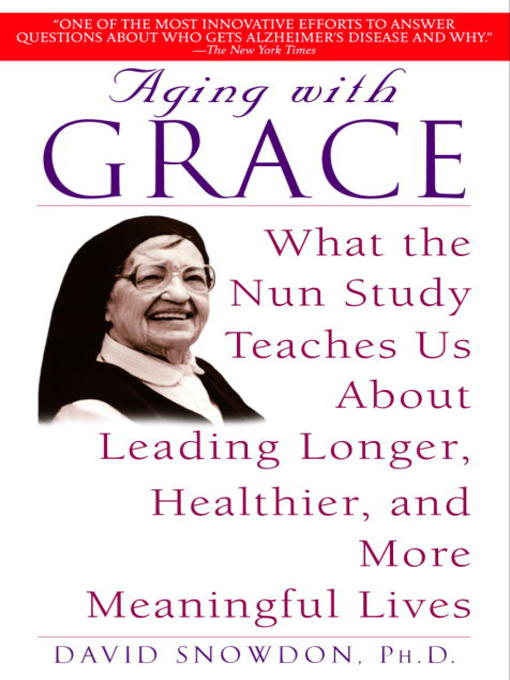
Aging with Grace
What the Nun Study Teaches Us About Leading Longer, Healthier, and More Meaningful Lives
- اطلاعات
- نقد و بررسی
- دیدگاه کاربران
نقد و بررسی

May 7, 2001
Since 1986, the author, an epidemiologist, has directed a research project dubbed the Nun Study. According to Snowdon, who previously studied Seventh-Day Adventists, religious group members make ideal subjects because of their similar and somewhat insular lives. Specifically, he has been tracking the lives of 678 elderly nuns who are members of the School Sisters of Notre Dame, to assess the effects of aging. Snowdon describes in detail a pilot study he conducted with the sisters in Mankato, Wis., on the link between level of education and disabilities related to aging. This initial research convinced him to expand his base to other convents and to focus primarily on Alzheimer's disease. The participants, ranging in age from 75 to 104, agreed to provide access to their medical and personal histories and, after death, to donate their brain tissue to the project. What distinguishes this study is Snowdon's decision not to maintain the usual "objective" distance from his subjects but rather to become emotionally involved with them. His commitment to treat them with "care and respect" is readily apparent in the many warm and sympathetic anecdotes and his expression of deeply felt grief when any of the sisters becomes incapacitated by Alzheimer's or dies. Among the project's findings is a clear correlation between a low rate of Alzheimer's and high linguistic ability. Snowdon has also found a positive relationship between the consumption of certain antioxidants (e.g., lycopene, found in pink grapefruit, tomatoes and watermelon), an exercise program and an optimistic outlook and aging successfully. Although the study is still under way, readers will certainly appreciate the early insights to be gleaned from Snowdon's human- (rather than statistic-) centered and compassionate story.




دیدگاه کاربران